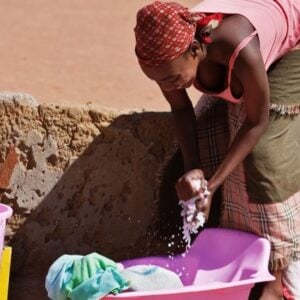The World Bank has approved more than $2 billion in new financing for Uganda, ending a two-year suspension imposed after the country enacted anti-LGBTQ legislation. Announced in Kampala by Treasury Secretary Ramathan Ggoobi, the funding will support major infrastructure and energy projects over the next three years. The decision marks the World Bank’s formal resumption of concessional lending to Uganda, reviving stalled government programmes in transport, power, and mineral development as the country heads toward elections in January 2026.
The suspension, imposed in August 2023, had halted one of Uganda’s largest sources of external finance, forcing the government to delay or scale back several public investment projects. With Uganda owing about $5 billion to the Bank, the institution remains the country’s biggest creditor. The restored funding will allow the government to reopen talks with the International Monetary Fund (IMF) for a new support programme after the elections.
The new financing aligns with Uganda’s “tenfold growth strategy,” a national plan to expand the economy to $500 billion by 2040 through industrialization, tourism, and innovation. Funds will mainly go toward road and bridge construction, electricity transmission, and renewable energy, while the International Finance Corporation (IFC) is expected to support private investments in mining and green energy.
Beyond its financial impact, the decision symbolizes Uganda’s re-entry into global development financing channels. Concessional loans, which offer low interest and long repayment terms, are essential for sustaining infrastructure development across Africa. Uganda’s return to the World Bank’s active borrower list provides much-needed fiscal relief, especially as domestic revenue struggles and debt servicing costs rise.
The move also reignites debate on the balance between social policy and economic priorities. The World Bank initially froze funding over human rights concerns but has now reinstated support under new safeguards ensuring non-discrimination in project implementation. This compromise underscores the ongoing tension in development finance between maintaining ethical standards and respecting national policy sovereignty.
For Uganda’s economy, the renewed financing comes at a crucial time. Infrastructure investment makes up more than a third of the national budget, and the freeze had slowed growth to 4.5 percent from 6 percent pre-suspension. The new funds could raise growth to around 6.2 percent by 2026, driven by energy and construction projects, though analysts caution that rising debt — already at 53 percent of GDP — requires careful management.
Environmental sustainability will be key as Uganda expands infrastructure in sensitive regions like Karamoja and the Albertine Graben. Renewable energy investments are expected to play a major role, with the government targeting an increase in electricity access from 58 percent to 80 percent within five years, reducing reliance on biomass and curbing deforestation.
Regionally, Uganda’s reinstatement signals that international lenders are willing to re-engage with governments that demonstrate improved governance and compliance. For nations such as Ghana and Zambia, the development highlights how credible reforms and transparent management can restore financial partnerships and investor confidence.







